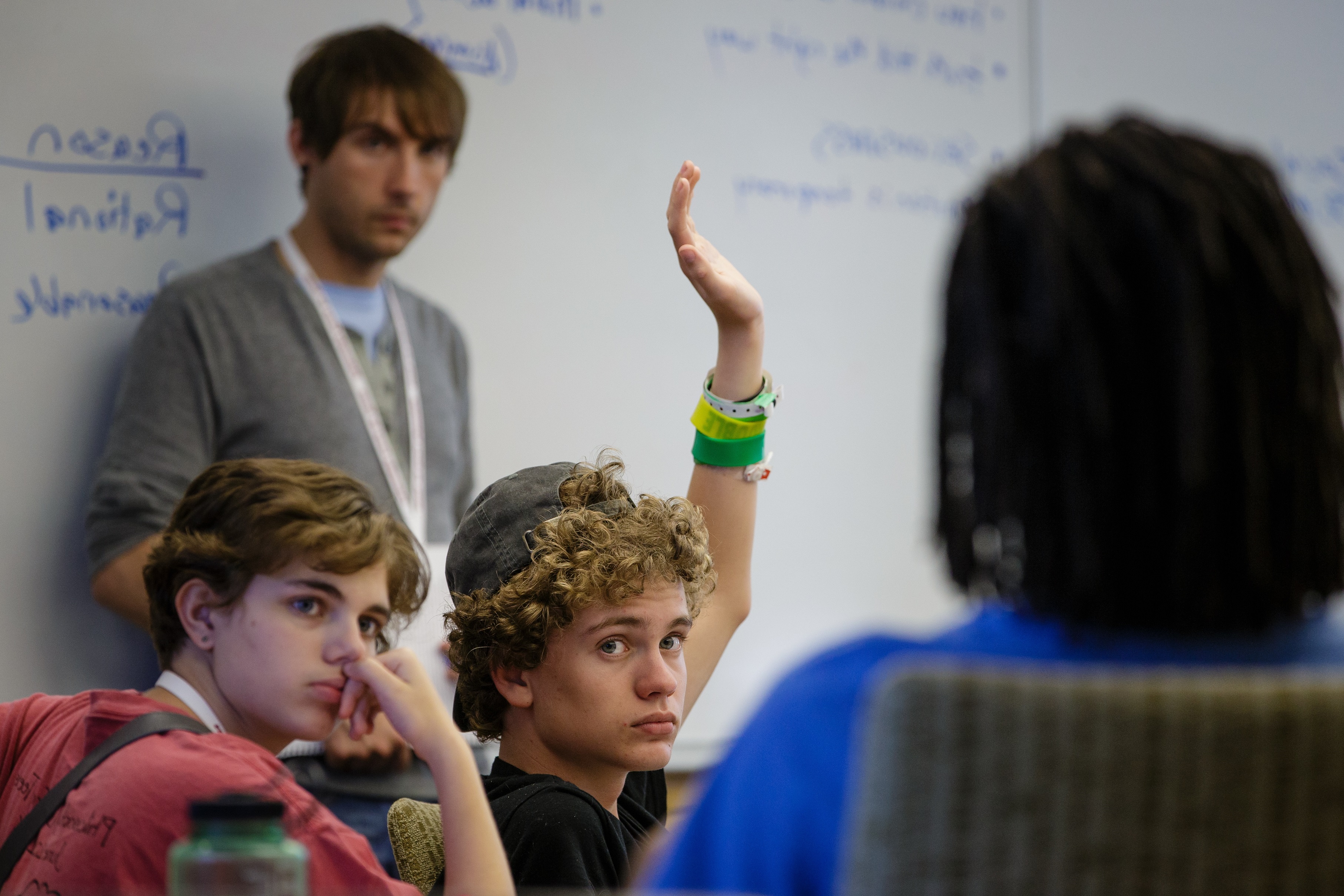
Additionally, Dr. Katz taught a semester-long course on Philosophy for Children. The regular MWF course introduced students to the scholarship and practice involved in pre-college philosophy. As a supplement to this class, Dr. Katz offered a two-credit lab course that would afford undergraduate students the opportunity to introduce philosophy into pre-college classrooms. Five undergraduate students took the plunge and decided to give this a try.
After spending the first half of the semester discussing children’s books, pedagogy, and philosophy-related activities, the students entered the classroom. Harmony Science Academy in Bryan, TX graciously welcomed these students into their school. These undergraduates introduced philosophy to one section of 1st graders and the two sections of 7th and 8th graders. Using books like Harold and the Purple Crayon, Frog and Toad, The Giving Tree, and The Paperbag Princess, the undergraduates engaged the first grade students in a variety of philosophical discussions:
- The difference between being alone and being lonely
- What does it mean to be brave?
- What does a princess look like?
- What are the different kinds of friendship?
- How does art help us solve problems?
With the 7th and 8th grade, the undergraduates used two philosophical problems to engage the students in philosophical discussions. “The Spaceship of Theseus” allowed the pre-college students to explore a philosophical conundrum known as a “Sorites paradox.” The specific question posed–when is the ship not the same ship?—raises the question of personal identity: How do we sustain identity over time, given that we go through changes at every moment of our lives.
The discussions were lively, engaged, and insightful with students making connections between identify and life-altering experiences like medical procedures. The Ring of Gyges, an allegory from Plato’s Republic, allowed students to explore the questions: What makes us act ethically? Do we act ethically because people are watching? What would we do if we knew we could get away with it? This discussion led them to consider the inverse question: “What do we do because we know people are watching?” In other words, these students engaged the philosophical theme of surveillance and behavior, considering many different angles of the question.
Confirming that education is a dynamic process, the various parties involved in this adventure were all changed by the experience. The pre-college students were introduced to a new way of thinking about ideas and discovered their philosophical voices and the college students discovered the magnificent teacher within themselves.